A Page From North Quabbin History: Mystery mechanism identified
| Published: 02-19-2024 3:49 PM |
By Carla Charter
The mystery mechanism highlighted in the Dec. 28 “A Page From North Quabbin History” has been identified as a 10-inch salesman’s model of a fulling machine.
“A salesman often had miniature models of what they had to promote. A real fulling machine would be huge,” said Barbara Hanno, vice president of the Petersham Historical Society.
The society does not know who donated or originally owned the item. The sample mechanism itself had no company name or other identifiers on it.
Fulling machines, Hanno explained, would be used to ‘full’ woolen cloth.
“The cloth would be placed in water and the action of the alternating feet that press down, powered by the action of the mill, would encourage the cloth to soften and stretch into a more ‘full’ fabric,” Hanno said.
The machines would be used after wool was woven into cloth to finish it, she said.
“Fulling machines were used in factories, however, in times before actual factories, the machines would be used at smaller ‘fulling mills’ in a community,” Hanno said. “There were two fulling mills in Petersham, one owned by Col. Joseph Brown and one by Theodore Winn, listed in the 1814 tax list. I imagine that a salesman might have come along into Petersham with this model, to show the Browns and the Winns how they might improve their small businesses.
Article continues after...
Yesterday's Most Read Articles
“To make a wool garment, people in that time period would have to raise the sheep, shear the sheep, spin the yarn, perhaps have a weaver—who might travel into town or be a town citizen—weave the cloth, then prepare it by fulling, and a tailor/seamstress might create the more complicated pieces of clothing. A housewife would sew also.”
Both Brown and Winn had clothier’s shops on their premises, which were also on the tax list.
“I don’t know how large a production either of these mills or shops had. It would be interesting to find a record of who worked there. Were they small local businesses or did they have larger aspirations? Maybe that’s why a salesman came along, to offer improvements,” Hanno said.
As for the identification of the mechanism, “At first our records said it was a felting machine,” said Hanno. “No online searches turned up anything like it. I wrote to the International Feltmaker’s Association in England and they didn’t recognize it.”
“The identification came when one of our members, Chris Eaton, who had worked at Old Sturbridge Village, recognized it as a fulling machine,” Hanno said. “I had also written to Historic Deerfield, and one of their specialists referred us to a video from Sweden showing how it worked. After the Swedish women demonstrated the machine, they showed how they could do it with a tub of water and their feet, too. Chris said that you could even use your hands to ‘full’ cloth. After we knew the right name, we found other references online. The South Acton Historical Society has video of an actual fulling machine at a South Acton mill from the 1700s that still works.”
For readers who have their own historical mystery items at home they are hoping to identify, the society is holding an open house/ mystery program on Feb. 25 from 2-4 p.m. at the Society Building at 10 North Main St., Petersham.
“People will be able to bring their own mystery items in the hopes they may be able to be identified. We may or may not know what they are,” Hanno said.
The society will have several mystery items from their collection on display as well. There is no cost or pre-registration required for people to bring their own mystery items. More information on the Petersham Historical Society can be found on its Facebook page.
Carla Charter is a freelance writer from Phillipston. Her writing focuses on the history of the North Quabbin area. Contact her at cjfreelancewriter@earthlink.net.

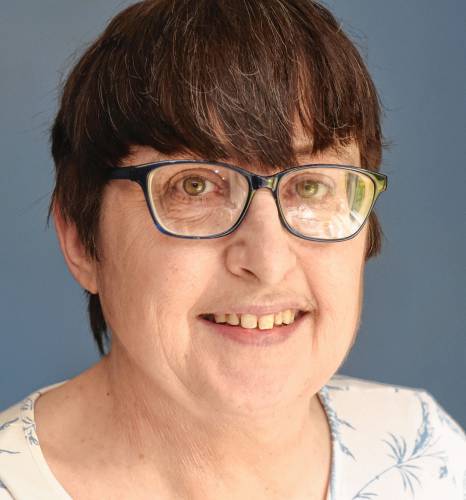
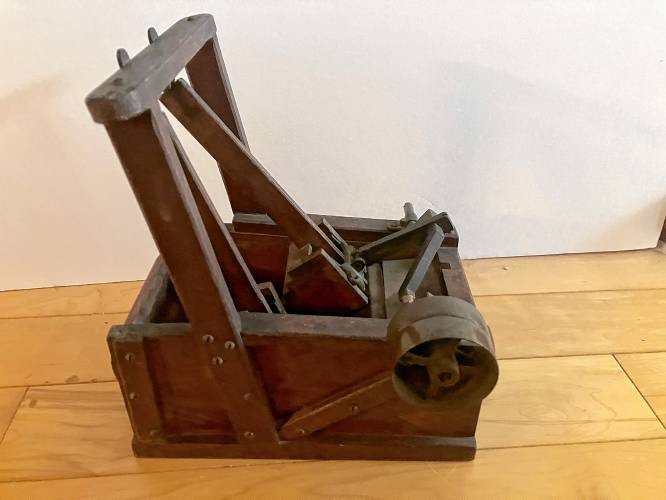
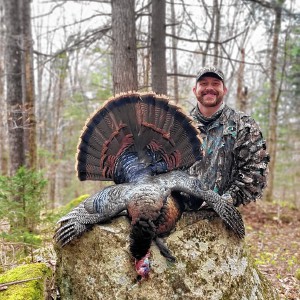 Sportsman’s Corner: The quest for the Super Slam
Sportsman’s Corner: The quest for the Super Slam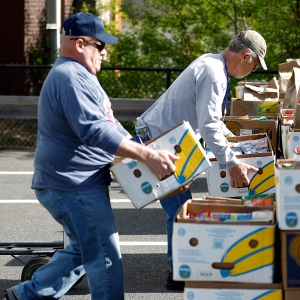 Annual ‘Food-A-Thon’ returns
Annual ‘Food-A-Thon’ returns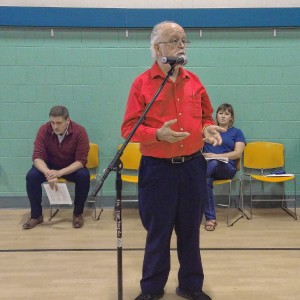 Erving Town Meeting voters back Care Drive housing project
Erving Town Meeting voters back Care Drive housing project North Quabbin Notes, May 9
North Quabbin Notes, May 9